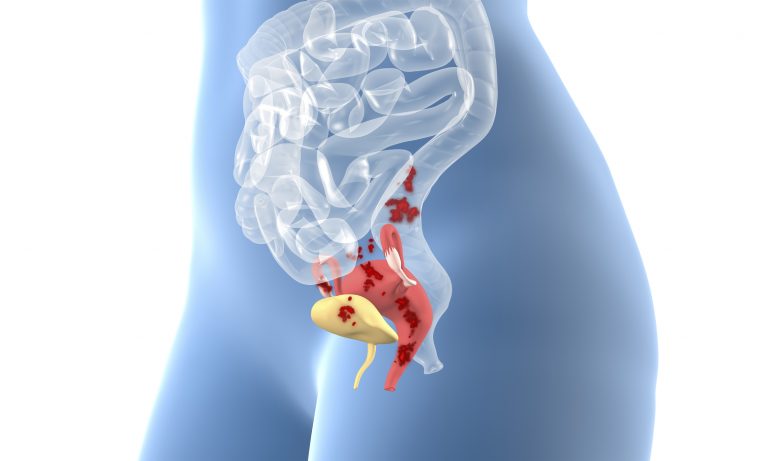
Women with endometriosis, a painful condition that causes womb-like tissue to grow outside the uterus, have epigenetic changes in the DNA of their reproductive cells that may predispose them to developing the condition.
“The findings raise the possibility that differences in methylation patterns could one day be used to diagnose endometriosis and develop customized treatment plans for patients,” said Stuart B. Moss, Ph.D., of the Eunice Kennedy Shriver National Institute of Child Health and Human Development, which helped fund the study.
Estimates suggest that up to 10% of women may be affected by endometriosis, which can cause chronic pain, infertility and poor outcomes in pregnancy. The reproductive hormone estrogen is known to make the abnormal growth of uterine tissue worse. Women with the condition also have abnormal regulation of progesterone – another sex hormone that plays a strong role in menstruation and pregnancy.
There is no cure for the condition, but treatment with progesterone or the combined birth-control pill can help manage the symptoms.
Exposure to estrogen and progesterone impacts how genes are expressed in female reproductive cells such as endometrial stromal fibroblasts, which play an important role in pregnancy. However, the exact role of epigenetic variation in the onset of conditions such as endometriosis is less clear.
A research team at the University of California, San Francisco investigated DNA methylation—a common epigenetic marker—in endometrial stromal fibroblast cells taken from women with early and late-stage endometriosis and those without. The team also looked at how these cells responded to exposure to estrogen and progesterone.
As reported in the journal PLoS Genetics, the researchers found that DNA methylation and the way genes were expressed in response to hormone exposure was different in the cells taken from the three different groups of women.
Notably, pre-existing aberrant DNA methylation markers were found in cells from women with the condition, suggesting an at least partially genetic predisposition to the condition. This could help with future diagnosis of these women, who currently often remain undiagnosed for years after they first report symptoms.
“The data indicate that the proper interactions of hormones and DNA methylation are critical in normal uterine function,” said the study’s lead author, Sahar Houshdaran, PhD, from UCSF. “The changes in these interactions that we’ve seen could play a role in the infertility that often accompanies endometriosis.”
An interesting finding was that women with early or stage I endometriosis had a distinct DNA methylation profile to women with late or stage IV disease, suggesting that they might be two different forms of the condition rather than two different stages of the same condition.













